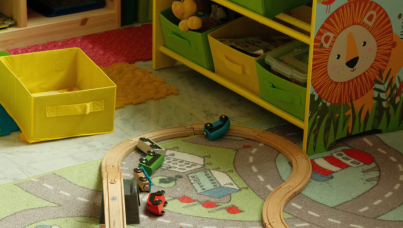Prince and Princess of Wales remain among the most popular Royals in both Britain and the US but attitudes towards Prince Harry vary across the Atlantic
- Public favourability towards Prince William and Prince Harry in Britain drops, but attitudes to the monarchy as an institution little changed
- US public less engaged with the Royals generally, but Prince Harry and Meghan are more popular there than in GB
New polling, conducted by Ipsos in Britain after the Duke of Sussex’s book “Spare” was released, shows several members of the Royal Family have seen a decrease in popularity since the end of last year, including the Prince and Princess of Wales and the Duke and Duchess of Sussex. Public favourability ratings have fallen since December for the Prince and Princess of Wales (-8ppt for Prince William and -7 for Princess Catherine) as well as for the Duke and Duchess of Sussex (-7ppt for Prince Harry and -5ppt for Meghan). Despite the fall, the Prince and Princess of Wales remain two of the most popular members of the monarchy with 61% saying they have a favourable opinion of Prince William and 60% of Princess Catherine – and in both cases the fall is partly a return from the increase in public sympathy they saw in the aftermath of Queen Elizabeth’s death.
The favourability ratings of the Duke and Duchess of Sussex continue to fall after the improvement they saw in September. Now, just under a quarter say they have a favourable opinion of Prince Harry (23%), down from 30% in December 2022, while Meghan’s ratings have fallen 5ppt to 19% favourable. More than half say they have an unfavourable opinion of the Sussexes (53% Prince Harry, 55% Meghan).
The King sees a marginal fall of 3ppt: 54% had favourable ratings of King Charles in December last year, 51% say the same now. Similar proportions feel the same towards the Royal Family as a whole - 53% are favourable, down just 1ppt. The Queen Consort, Camilla, sees no change in her favourability ratings at 38%, though her unfavourable numbers rise from 25% to 30%.
Among the King’s siblings, Princess Anne now ties with the Prince and Princess of Wales with 60% favourable towards her, down from 64% in December, while around 4 in 10 (42%) are favourable towards Prince Edward (down 3ppt) and just 1 in 10 (10%) are favourable towards Prince Andrew (down 2ppt).
Meanwhile in the US we see both similarities and differences to Britain. Generally, Americans have less strong opinions on members of the Royal Family than Britons, as might be expected. Nevertheless, despite this the Prince and Princess of Wales are among the more popular Royals in the US, as they are in Britain. Nearly half, 47% feel favourable towards Princess Catherine, and 40% towards Prince William – only 15% and 11% respectively feel negative.
There are bigger differences in attitudes towards the Sussexes and to the King. On balance, Americans are more positive than negative towards Prince Harry and his wife, as opposed to the more negative views in Britain. In the US, as many are favourable towards Prince Harry (41%) as are towards his brother (although Harry gets slightly more negative views, with 23% unfavourable towards him). The Duchess of Sussex also receives slightly more positive than negative public opinion in the US, by 35% favourable to 26% unfavourable. King Charles, on the other hand, gets equal numbers of favourable and unfavourable views in the US (25% vs 24%, with half either neutral or with no opinion). Compared with a Ipsos study carried out before Prince Harry and Meghan’s wedding in 2018, public attitudes in the US are less positive now towards the Sussexes (favourability down 11ppts for Prince Harry and 8 ppts for Meghan) and towards Prince William (down 13 ppts) – though note comparisons are not exact and should be treated carefully given slight differences in the sample (in 2018 it was of ages 18-65, in 2022 18-75). Overall, when asked which member of the Royal Family they like the most, Americans’ top three are Prince Harry (25%), the Princess of Wales (22%) and Prince William (17%).
Who will do a good job as King?
Recent events have had a small impact on views of Charles as King. 55% believe he will do a good job, falling from 61% in December. However, this is still higher than expectations earlier in the year (for example, in June 49% thought he would do a good job). A quarter (28%) now say he will do neither a good nor bad job, up 6ppt since December, while 11% say he will do badly (-1).
Prince William also sees a fall but is still expected to do well as King by 68% of Britons – down 6ppt from 74% since December last year, but again in line with his ratings from June. The proportion of those who believe he will do neither a good nor bad job has increased 3ppt to 18% and 9% now expect him to do badly, up from 6%.
Should the Monarchy be abolished?
Now, just over 4 in 10 (42%) say it would be worse for Britain if the Monarchy was abolished, up 2ppt since December, while 25% believe it would be better, up 3ppt. Around a quarter (26%) say it would make no difference, -3ppt.
Opinion is more split among younger Britons with 34% of 18-34s saying it would be worse for Britain if the Monarchy was abolished and 29% saying it would be better. Older Britons are more convinced of the benefits of monarchy; 50% of 55-75s say the country would be worse without it (22% say better), while 41% of 35-54s also say worse, 25% better.
Opinion is more split in the US, with many saying abolishing the monarchy would make no difference to Britain (43%), or being without an opinion (29% don’t know). Almost 1 in 5 (18%) believe Britain would be better off without a monarchy while around 1 in 10 (11%) say it will be worse off. This is slightly worse than in 2018, when 12% thought Britain would be worse off and 15% better off (the relative change in views is similar to that seen in Britain since Prince Harry’s wedding), but the largest proportion remain those who are neutral or don’t know (though note as above comparisons with 2018 are not exact given slight changes in the sample).
Recent events – who’s paying attention?
The past couple of months have been eventful for the Royal Family with the release of “The Crown” and “Harry and Meghan” on Netflix towards the end of last year, along with Prince Harry’s new book “Spare” released in the past week. But is anyone paying attention?
Around half say they are closely following news stories about the Royal Family as a whole (49%). In comparison, 89% are paying attention to stories about the rising cost of living, 71% to possible future strikes in the public sector and 65% to the Russian invasion of Ukraine.
Looking specifically at the recent Royal stories, around 3 in 10 say they are following them: 34% each say they have been following the release of “Spare” and “Harry: The Interview” on ITV, while 3 in 10 say they are following stories about “Harry and Meghan” on Netflix (30%) and “The Crown” (28%).
Just under a quarter of Britons (23%) say they are likely to read Prince Harry’s book “Spare” while 73% say they are unlikely to do so. Younger Britons are most likely to read it (36% of 18-34s compared to 9% of 55-75s and 25% of 35-54s).
Kelly Beaver MBE, Chief Executive of Ipsos in the UK and Ireland, says:
Both Prince Harry and his brother Prince William seem to have suffered in British public opinion following the release of the Duke of Sussex’s memoir and the claims within it – and there is some evidence other members of the Royal Family are feeling the fall-out too. This data also re-emphasises the need for the monarchy to show it can speak to and be relevant for younger generations. The comparison with the US is interesting – as we might expect, Americans are less likely to have strong views about the monarchy than Britons and are less convinced about its benefits. But they do feel more positive towards Prince Harry and Meghan than the British – although the Prince and Princess of Wales get relatively favourable views there too.
But the immediate impact on public opinion should not be exaggerated – and it should be noted is partly a return from the uplift in public sympathy after the sad passing of the Queen. Britons are still much more positive than negative towards the King, the Prince and Princess of Wales and the Princess Royal, and towards the Royal Family as a whole, and views towards the institution as a whole are so far little changed. While the stories may have challenged the public’s views towards the individuals involved, the monarchy itself endures for now.
Technical note:
- Ipsos interviewed a representative quota sample of 1,000 adults aged 18-75 in Great Britain. Interviews took place on the online Omnibus 10th-11th January 2023. Data has been weighted to the known offline population proportions. All polls are subject to a wide range of potential sources of error.
- United States results are from an Ipsos poll conducted between January 11-12, 2023. For this survey, a sample of 916 adults aged 18-75 from the continental U.S., Alaska, and Hawaii was interviewed online in English. Data has been weighted on age, gender, region, race/ethnicity, and household income.





